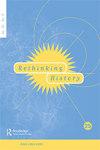贫困社区的归属:通过污水处理鬼城的新认识
IF 0.8
2区 历史学
Q1 HISTORY
引用次数: 0
摘要
摘要下水道城镇社区经常因为与下水道的联系而遭受歧视,但他们却在贫困的边缘蓬勃发展。最近一项针对澳大利亚和英国污水城镇社区的研究,特别是在澳大利亚城市郊区墨尔本大都会污水处理场发展起来的社区,强调了污水城镇社区具有包容性和高度连通性。创造性写作研究方法论的诗学支持了许多元素聚集在一起,通过这些下水道城镇社区来探索穷人。这项研究强调了社区内部形成的权力真空的强度,这种真空生活在一种被抛弃的状态中,是为了一种归属感的存在。一旦社区放弃了这个小镇,这些强大的特质就会保留下来,成为一种精神或本质,在下水道鬼城中继续散发。诗学方法论允许人们重新思考污水城镇是如何在其悲惨的边缘生存和繁荣的,以及一旦社区放弃污水城镇会发生什么,因为污水鬼城有一种矛盾的美学和令人难忘的真相。即使是在没有空气但充满了在酸味恶臭中茁壮成长的动物的聚集水域,以及消失在橄榄色和棕色水域中的可怜虫,也可能是美丽的。见解可以应用于任何边缘化或赤贫的社区和公司城镇。本文章由计算机程序翻译,如有差异,请以英文原文为准。
The belonging in abject communities: a new understanding through sewerage ghost towns
ABSTRACT Sewerage town communities often experience discrimination because of their association with sewerage, and yet they flourish on their abject margins. A recent study of sewerage town communities in Australia and the UK and specifically, the community that grew on Melbourne’s Metropolitan Sewerage Farm, established on the Australian city’s outskirts, highlighted that sewerage town communities are inclusive and highly connected. A poetics of creative writing research methodology supported many elements to come together to explore the abject through these sewerage town communities. The study highlighted the strength of the power vacuum that forms within the community living in a state of abjection, for a belonging existence. These powerful attributes remain once the community abandons the town, as a spirit or essence that continues to emanate as a haunting in the sewerage ghost town. The poetics methodology granted a rethinking of how sewerage towns survive and thrive in their abject margins and what happens once the community abandons the sewerage town, for a paradoxical aesthetic and haunting truth of the sewerage ghost town. Even the murk of mustarding waters, devoid of air but teeming in critters that thrive in the souring stench, and the poor blighter disappearing within those waters of olive and brown, can be beautiful. Insights can be applied to any marginalised or abject community and company town.
求助全文
通过发布文献求助,成功后即可免费获取论文全文。
去求助
来源期刊

Rethinking History
Multiple-
CiteScore
1.20
自引率
0.00%
发文量
26
期刊介绍:
This acclaimed journal allows historians in a broad range of specialities to experiment with new ways of presenting and interpreting history. Rethinking History challenges the accepted ways of doing history and rethinks the traditional paradigms, providing a unique forum in which practitioners and theorists can debate and expand the boundaries of the discipline.
 求助内容:
求助内容: 应助结果提醒方式:
应助结果提醒方式:


